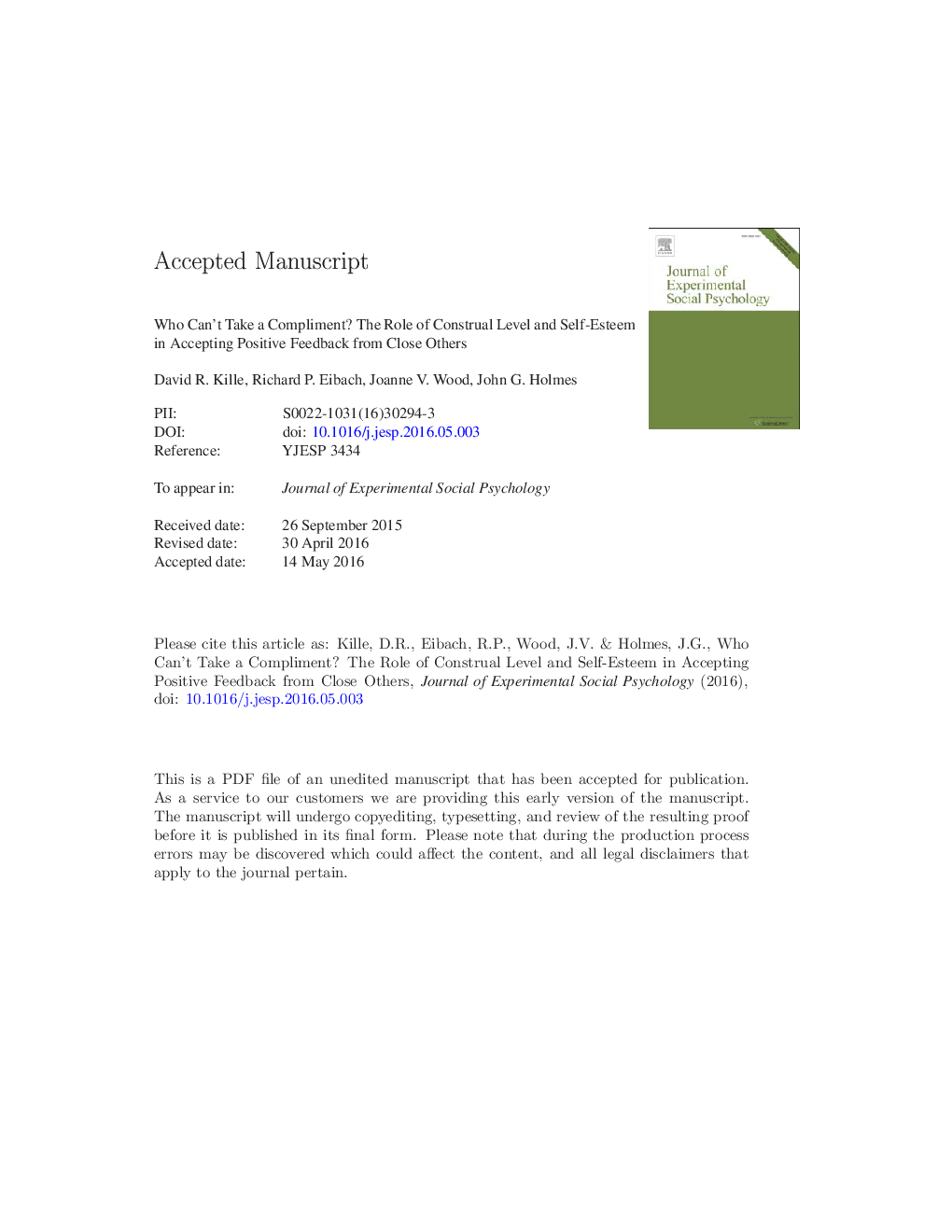ترجمه فارسی عنوان مقاله
چه کسی نمیتواند تعریف کند؟ نقش سطح محتوا و اعتماد به نفس در پذیرش بازخورد مثبت از سوی دیگران
عنوان انگلیسی
Who can't take a compliment? The role of construal level and self-esteem in accepting positive feedback from close others
| کد مقاله | سال انتشار | تعداد صفحات مقاله انگلیسی |
|---|---|---|
| 115394 | 2017 | 48 صفحه PDF |
منبع

Publisher : Elsevier - Science Direct (الزویر - ساینس دایرکت)
Journal : Journal of Experimental Social Psychology, Volume 68, January 2017, Pages 40-49
ترجمه کلمات کلیدی
سطح قاعده تعارف، اعتماد به نفس، روابط، تنظیم ریسک،
کلمات کلیدی انگلیسی
Construal level; Compliments; Self-esteem; Relationships; Risk-regulation;

